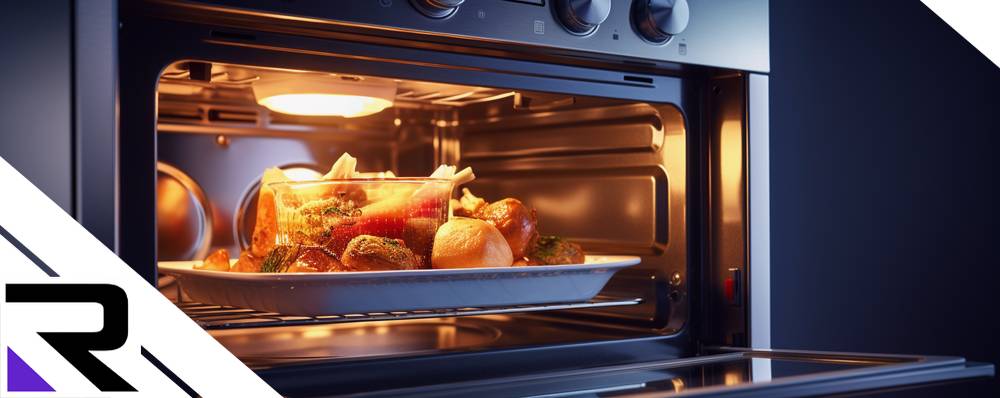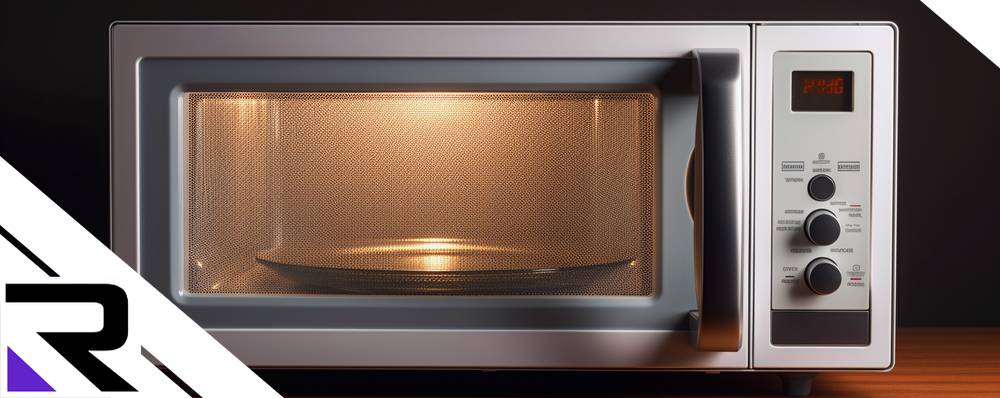
Contents
- 1 Common Problems
- 2 Diagnostic Process
- 3 Repair Techniques
- 4 Why is My Microwave Not Heating: Could it be the Diode or Magnetron?
- 5 Why is My Microwave Running but Not Heating: Could it be the Door Switch?
- 6 Why Does My Microwave Keep Tripping the Circuit Breaker: Could it be the Power Cord or Outlet?
- 7 Why is My Microwave Making a Loud Noise: Could it be the Stirrer Motor?
- 8 Safety Considerations
- 9 4Maintenance Tips
- 10 Our Professional Services
- 11 Cost Estimator
Common Problems
Microwaves can encounter a range of problems during their lifecycle. Some of the most common issues include:
- Heat not generating
- Inconsistent heating
- Turntable not rotating
- Unusual noises
- Sparking or arcing inside
- Door latch problems
These problems can be caused by various factors, including faulty components, worn-out parts, or electrical issues. It is important to diagnose the problem accurately before attempting any repairs.
Diagnostic Process
The diagnostic process involves identifying the root cause of the microwave malfunction. It typically includes:
- Visual inspection for any visible damages
- Using a multimeter to check for continuity
- Testing individual components such as the magnetron, capacitor, and diode
- Reviewing error codes, if applicable
Accurate diagnosis is crucial for efficient repairs. If you are unsure about the diagnostic process or lack the necessary tools, it is advisable to seek professional assistance.
Repair Techniques
Once the problem has been identified, there are several repair techniques that can be employed:
- Replacing faulty components
- Repairing damaged wiring or connections
- Cleaning or replacing the turntable motor
- Adjusting or replacing the door latch
- Repairing or replacing the control panel
It is important to follow manufacturer guidelines and safety precautions while performing repairs. Alternatively, you can rely on the expertise of professional technicians who specialize in microwave repairs.
Why is My Microwave Not Heating: Could it be the Diode or Magnetron?
You put your food in, the timer ticks down, but the plate comes out just as cold as it went in. If your microwave isn’t heating, it could be an issue with the magnetron or diode. According to the tech-gurus over at PartSelect, here are the steps to check the diode:
- Unplug your microwave and discharge the high voltage capacitor to prevent a dangerous shock.
- Remove the diode from your microwave – this usually involves removing the cabinet and a couple of screws.
- Using a multi-meter on the Rx1 setting, touch the probes to the diode terminals. The diode should show high resistance in one direction and low resistance in the other.
If the diode checks out, it might be a faulty magnetron. But testing a magnetron involves handling potentially dangerous components and it’s best to leave that to a professional.
Why is My Microwave Running but Not Heating: Could it be the Door Switch?
The door switch signals the microwave to start heating when the door is safely closed. If this switch malfunctions, your microwave may run but not heat. Repair Clinic outlines how to check the door switch:
- After unplugging the microwave and discharging the high voltage capacitor, locate the door switches – they should be near the door latch assembly.
- Test the switches for continuity using a multi-meter. If any switch shows no continuity, it needs to be replaced.
Why Does My Microwave Keep Tripping the Circuit Breaker: Could it be the Power Cord or Outlet?
A microwave that’s tripping the circuit breaker can be a nuisance. This problem could stem from an issue with the power cord or outlet. The home improvement experts at The Spruce suggest these steps:
- Check the outlet: Plug a different appliance into the outlet. If the circuit breaker trips again, the problem is likely with the outlet or circuit.
- Check the power cord: Look for any signs of wear or damage. If it’s visibly damaged, it’s time to replace it.
Why is My Microwave Making a Loud Noise: Could it be the Stirrer Motor?
If your microwave sounds like it’s preparing for takeoff, the stirrer motor might be to blame. According to Sears Home Services, you can check the stirrer, which distributes the microwaves, by:
- Unplugging the microwave and removing the cabinet.
- Locating the stirrer, which is usually above the oven cavity and under the waveguidecover.
- Checking for any signs of damage. If the stirrer is broken or bent, it will need to be replaced.
Safety Considerations
While working on microwaves, it is crucial to prioritize safety. Some key safety considerations include:
- Always unplug the microwave before performing any repairs
- Wear protective gloves and goggles to prevent injuries
- Be aware of high voltage areas and handle components with caution
Additionally, it is recommended to refer to safety guidelines provided by the manufacturer for specific models and brands.
For more information on safety considerations, check out our comprehensive guide on Refrigerant Leak Detection Guide and learn how to ensure safe repairs for cooling appliances. You may also be interested in understanding the intricate workings of washing machines and how to tackle vibration-related issues. Read our guide on Understanding Vibration in Washing Machines to enhance your troubleshooting skills.

4Maintenance Tips
Regular maintenance can prevent many microwave issues and extend its lifespan. Here are some maintenance tips:
- Clean the interior regularly to remove food particles and spills
- Check the door seal for any signs of wear or damage
- Inspect and clean the ventilation system
- Avoid overloading the microwave
- Refer to the user manual for specific maintenance instructions
Following these tips will help keep your microwave in optimal condition.
Our Professional Services
If you require professional assistance with microwave repairs in Miami, our experienced technicians are here to help. Our services include:
- Accurate diagnosis of microwave problems
- Expert repairs using genuine parts
- Thorough testing and quality assurance
- Fast and reliable service
Trust our team of professionals to ensure your microwave operates efficiently and safely.
For additional information on related topics, browse through our guides on Vacuum Pump Oil, Pneumatic and Air Tool Oil, and Inline Water Filters. You may also find our guide on Understanding Automatic Coffee Machines Technology and Functionality fascinating if you’re curious about the inner workings of coffee appliances.
Disclaimer: This guide is provided for informational purposes only. It is always recommended to consult a professional technician or refer to the manufacturer’s instructions for accurate repair and maintenance guidance.
Cost Estimator
- Average Life Expectancy (Years) 9
- Average Repair Price ($) 76-202
- Average New Price ($) 100-500
- Average New Price Including Replacement ($) 175-700
- Cost per Year ($) 19-78
- Magnetron failure: 100-200
- Control panel malfunction: 75-150
- Turntable motor failure: 50-100
- Magnetron: 50-100
- Control panel: 50-100
- Turntable motor: 25-50






